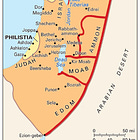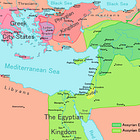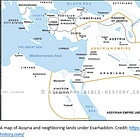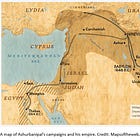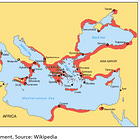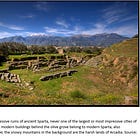How to Read A History of Mankind (Posts 1 to 79)
An updated guide to navigating the contents of this Substack
When I launched the History of Mankind project in early 2022, I had already been at work on this for over two decades.
The plan always was to write a long, detailed, single-author history of mankind. I wrote much of the start of the project (the first two entries of this Substack) in the first decade of the millennium. In 2016, I began to write a comparative history of ancient Western and Chinese philosophy that was just published as a book; it was then that I realized that I already had accumulated hundreds of thousands of words on human history, that needed to be organized, re-written and re-shaped.
There is a lot of stuff to come. Substack is great and all, but it’s not the easiest way to navigate complex material spanning millennia. This is why I recommend that people sign up for regular emails, between 9 and 10 per month, and read the History of Mankind chronologically; and I recommend that those on the free tier become paying members, so they can read everything (some posts are pay-walled) and also comment on posts, read and participate in the Q&As, and peruse the archives, which are fully pay-walled:
I do understand that not everyone wants to read the History of Mankind in strict chronological order, from the very first post all the way to the start of human culture and then on to the rise of the Cretan civilization (this post is very popular, I suspect, because of an explanation of the local custom of public display of female breasts at least during some ceremonies) and then forward.
I don’t even write all posts in strict chronological order, although I do publish them in such an order. And not everyone is (like myself) interested in the history of all mankind, every continent and every country. Some people have a particular interest in, say, Western or Indian or Chinese of American history.
That’s why I will keep updating this section below, where I will separate the posts by topic (say, era and region), so that it’s easier to keep track of one’s specific interests and find ways to read the History of Mankind on a subject, rather than chronological, basis.
I do not recommend reading the posts on this thematic basis. I recommend chronological reading, because it makes everything easier to understand, and various subjects and comparisons from different regions are discussed in all posts. All the same, I made a list below of all the posts published covering the period roughly to 600 BC, ordered by subject and region; some are duplicated because they touch on more than one subject directly; all posts older than eight weeks become fully paywalled:
-PREHISTORY & EARLY HOLOCENE
-ANCIENT EGYPT
-ANCIENT MESOPOTAMIA & FERTILE CRESCENT
-SOUTH ASIA
-THE AMERICAS
-EAST ASIA & OCEANIA
-SUB-SAHARAN AFRICA
-PREHISTORIC EUROPE & THE STEPPES
-CLASSICAL-ERA EUROPE
Keep reading with a 7-day free trial
Subscribe to A History of Mankind to keep reading this post and get 7 days of free access to the full post archives.




